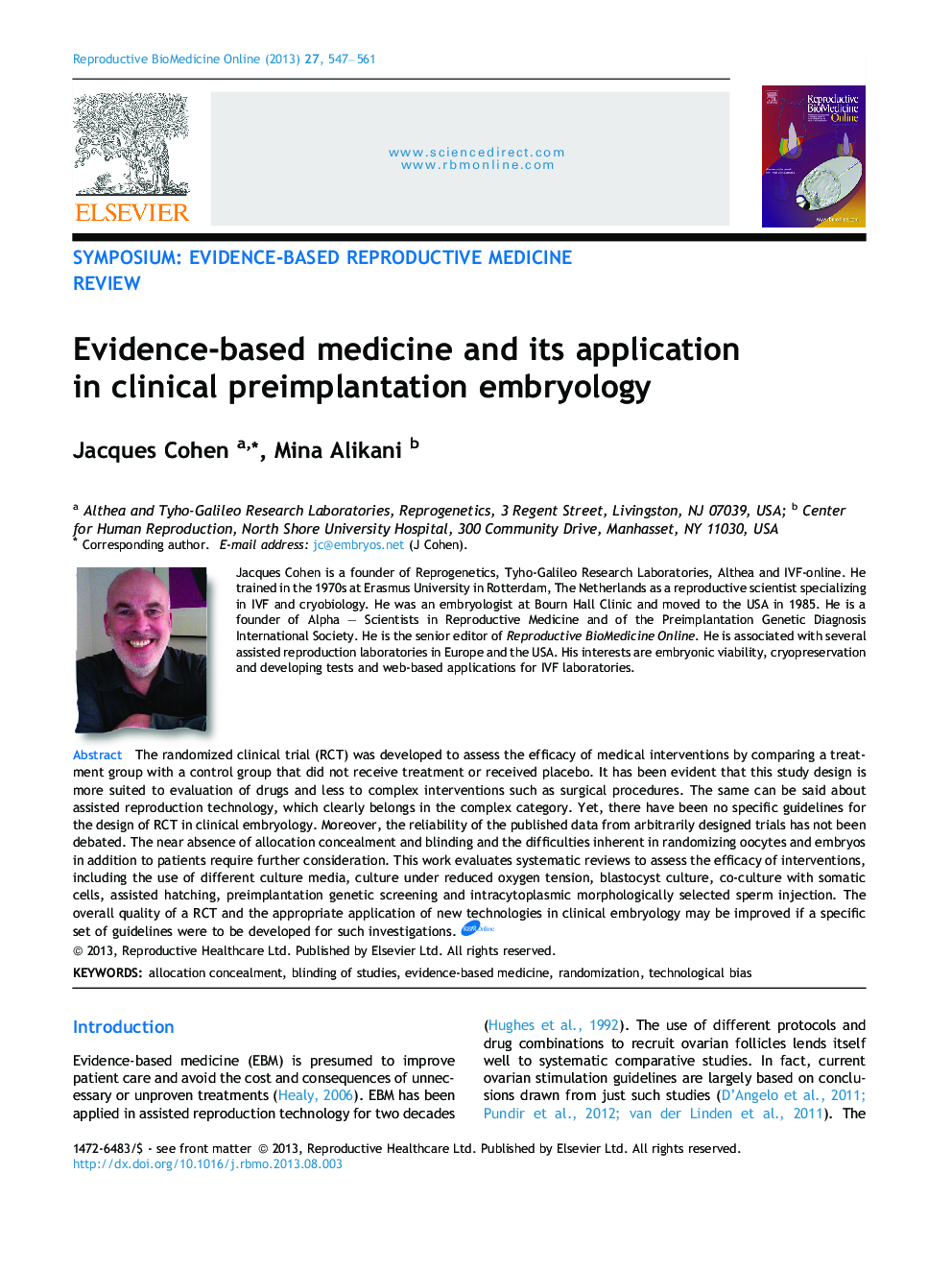| Article ID | Journal | Published Year | Pages | File Type |
|---|---|---|---|---|
| 3970499 | Reproductive BioMedicine Online | 2013 | 15 Pages |
The randomized clinical trial (RCT) was developed to assess the efficacy of medical interventions by comparing a treatment group with a control group that did not receive treatment or received placebo. It has been evident that this study design is more suited to evaluation of drugs and less to complex interventions such as surgical procedures. The same can be said about assisted reproduction technology, which clearly belongs in the complex category. Yet, there have been no specific guidelines for the design of RCT in clinical embryology. Moreover, the reliability of the published data from arbitrarily designed trials has not been debated. The near absence of allocation concealment and blinding and the difficulties inherent in randomizing oocytes and embryos in addition to patients require further consideration. This work evaluates systematic reviews to assess the efficacy of interventions, including the use of different culture media, culture under reduced oxygen tension, blastocyst culture, co-culture with somatic cells, assisted hatching, preimplantation genetic screening and intracytoplasmic morphologically selected sperm injection. The overall quality of a RCT and the appropriate application of new technologies in clinical embryology may be improved if a specific set of guidelines were to be developed for such investigations.A special investigation called the randomized clinical trial (RCT) was developed many years ago to assess the use of new medical interventions. The RCT compares patients who were treated with others who did not receive treatment. This type of study is more suited to new drug evaluations and less to complex interventions such as surgical procedures. The same can be said about assisted reproduction technology, which clearly belong in the complex category. In this article, we evaluate so-called systematic reviews of RCT performed to assess the efficacy of clinical embryology interventions such as preimplantation genetic screening, intracytoplasmic morphologically selected sperm injection, blastocyst culture, culture under reduced oxygen tension, co-culture with somatic cells and assisted hatching. There have been no specific guidelines for the design of RCT in clinical embryology and this topic has not been debated extensively. This manuscript describes that most RCT studies in embryology have some bias because of the difficulties hiding treatment approaches from embryologists and the complexity of randomizing oocytes and embryos reliably. The overall quality of RCT and the appropriate application of new technology in clinical embryology may be improved if a specific set of guidelines were to be developed for such investigations in the near future.
